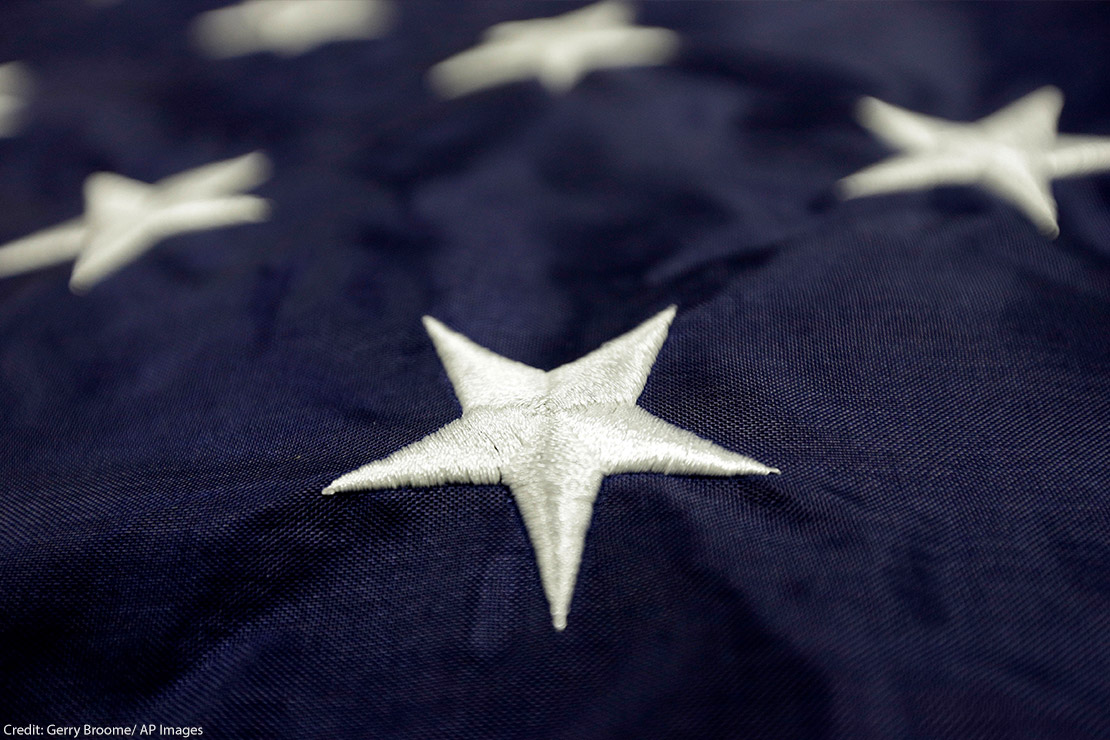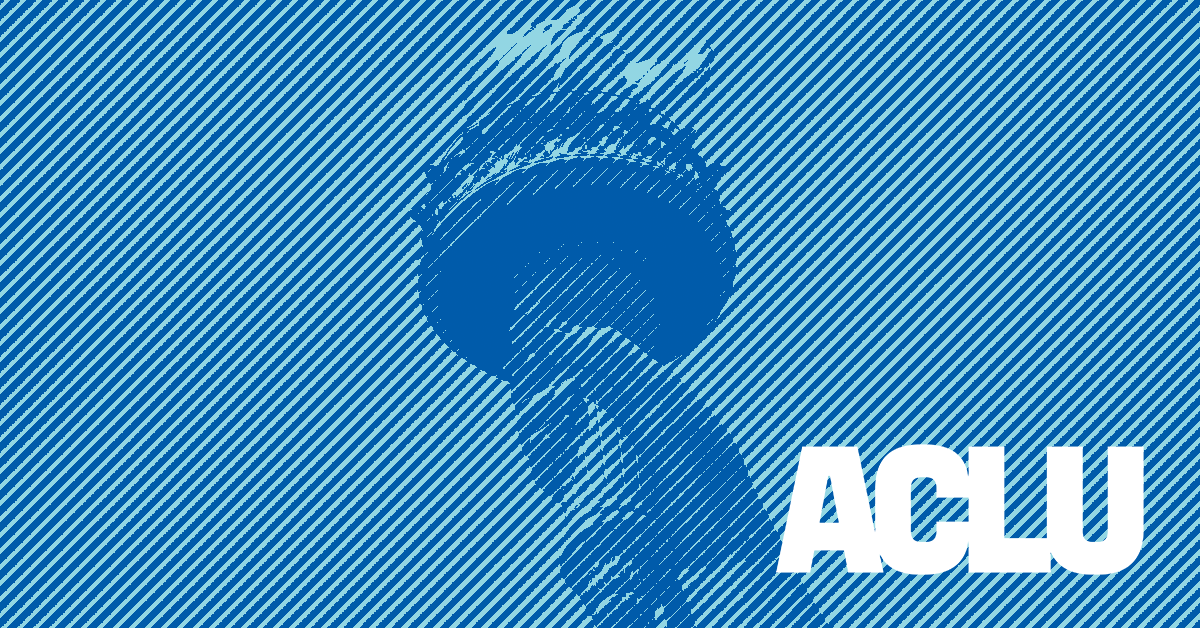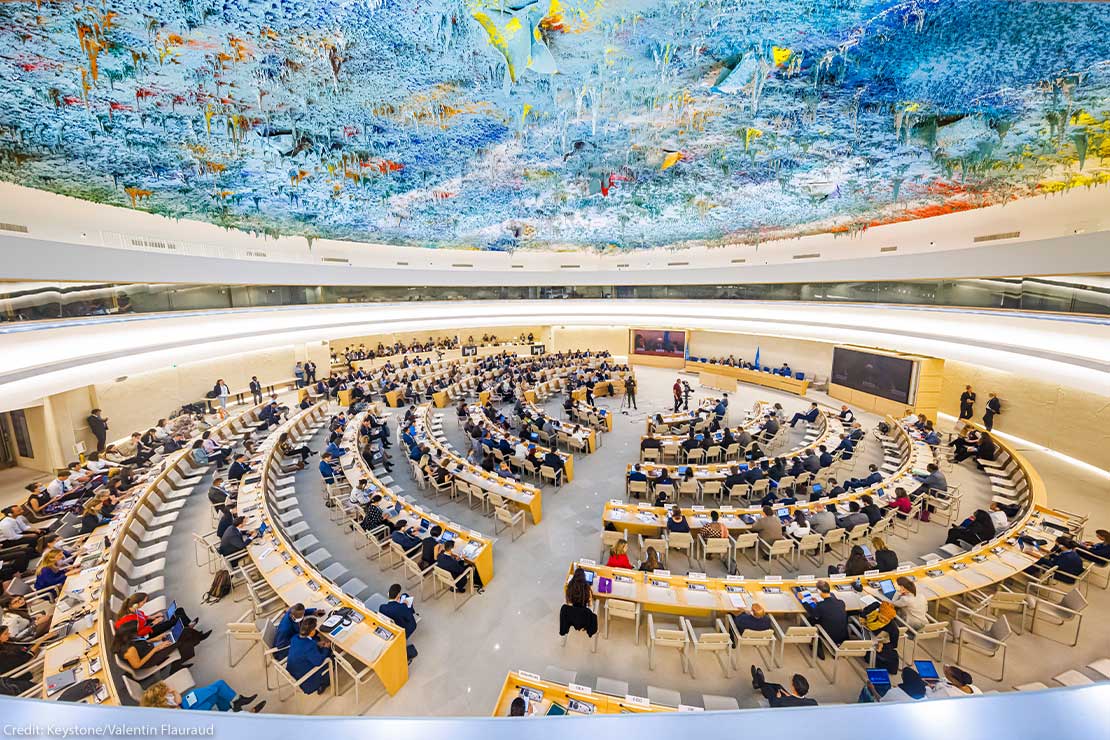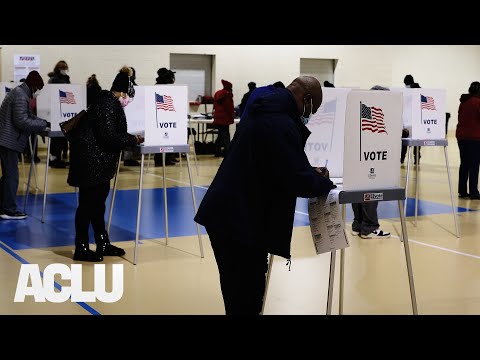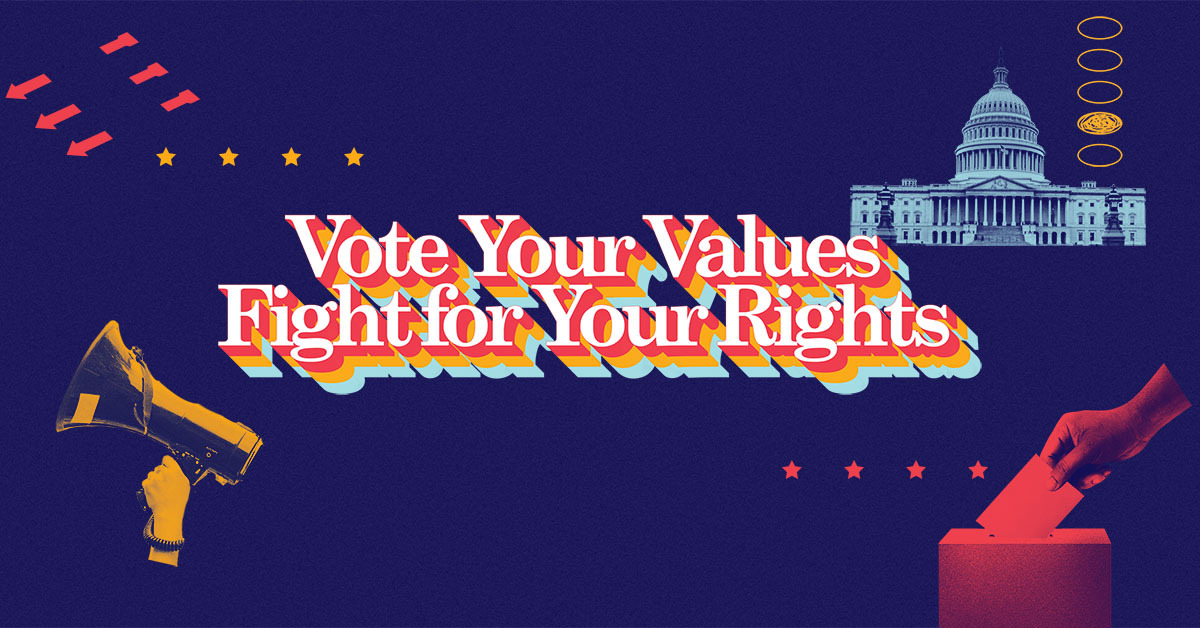“Turn to the states.” That has been the battle cry among many who seek to preserve the right to abortion since the Supreme Court’s shameful decision overturning Roe v. Wade. In the immediate aftermath of Dobbs v. Jackson Women’s Health Organization, the ACLU, with our affiliates and allies (especially Planned Parenthood and the Center for Reproductive Rights) won preliminary victories under state constitutions allowing abortion services to continue or resume, at least temporarily, in Kentucky and Utah, and are litigating similar claims in a number of state courts including Georgia, Florida, and Ohio.
At the ACLU, we have long been litigating for civil liberties and civil rights in state courts — on abortion and so much else. In “Our New Federalism,” an ACLU report released today, we review a wide range of state constitutional victories over the past several years, a testament to our commitment to using state courts to protect and expand civil rights and civil liberties.
State courts hold promise in the face of a hostile federal judiciary for three reasons. First, although state constitutions cannot be less protective than the federal Constitution, state courts can interpret their own constitutions and laws to be more protective. Second, state supreme courts have the final say on state law, so a civil rights victory under state law generally cannot be appealed to the U.S. Supreme Court. And third, because so much of the day-to-day regulation of our lives is carried out by the states, the lion’s share of civil rights and civil liberties issues arise in the context of state enforcement; and that means state constitutional limitations apply as well as federal ones. Roughly 90 percent of all criminal laws are state-based, for example, rather than federal.

In 2022 alone, the ACLU has won several important state court civil rights victories. The ACLU and its Ohio affiliate won state supreme court rulings that Ohio’s redistricting maps violate a state constitution provision that bans partisan gerrymandering. The U.S. Supreme Court has ruled that partisan gerrymandering is beyond the reach of the federal courts, so this result would not have been possible under federal law.

In January, the New Jersey Supreme Court limited lengthy prison sentences for juvenile offenders in State v. Comer, an ACLU of New Jersey case. This ruling likewised relied on a provision in the New Jersey Constitution that does not appear in the U.S. Constitution.

February, the ACLU of Montana, together with the Center for Reproductive Rights, blocked a state law that prevented qualified clinicians, including nurse practitioners and nurse midwives, from providing early abortion services. In anticipation of the Supreme Court’s ruling in Dobbs, we went to state court in Michigan, and together with Planned Parenthood, won a preliminary injunction in May barring the enforcement of Michigan’s 1931 felony abortion law under the Michigan Constitution. Because both of these rulings rest on state law grounds, they are undisturbed by Dobbs

In March and July, the ACLU and its Texas affiliate, together with allies Lambda Legal and PFLAG, turned to state court to challenge Gov. Greg Abbott’s directive that providing gender-affirming care should be investigated as child abuse. In Doe v. Abbott and PFLAG v. Abbott, the state court blocked investigations of our clients under the directive until all issues in the lawsuits are fully resolved.
At the ACLU, this is nothing new. We have defended civil liberties in state courts since our founding over 100 years ago.

In 1925, the ACLU argued in the trial of John T. Scopes (known as the Scopes “Monkey Trial”) that a Tennessee law banning the teaching of evolution violated the Tennessee Constitution. Although Scopes was convicted, the media coverage of the case reached millions, and in just the next two years, bills prohibiting the teaching of evolution were defeated in 22 states.

In 1969, we filed an amicus brief supporting the very first challenge to the constitutionality of an anti-abortion statute in the Supreme Court of California. In People v. Belous, the court invalidated California’s abortion restriction on state constitutional grounds. And since then, we sued in various state courts to establish independent state law protections for abortion, to extend Medicaid coverage to abortion, and to protect teens seeking abortions (including in New Jersey and Alaska).
In the first two decades of this century, the ACLU partnered with our allies to argue in state court that the right to marry should extend to same-sex couples. That claim had been summarily rejected in federal court, but marriage equality wins in Vermont, Massachusetts, Connecticut, California, Iowa, New Mexico, and New Jersey laid the groundwork for the U.S. Supreme Court’s recognition of the federal right to marriage equality in Obergefell v. Hodges.

State laws have also made it possible to challenge racial discrimination in the administration of the death penalty, in circumstances that federal law does not reach. The ACLU and its North Carolina affiliate successfully advocated for passage of a state Racial Justice Act, which allowed individuals facing capital punishment to have their sentence commuted to life imprisonment without parole if they could show that racial bias had affected their trial — a pivotal state law protection, given a prior U.S. Supreme Court ruling that such racial disparities did not violate the federal constitution. We then brought the first case under this law, and showed that racial discrimination tainted the trial of Marcus Robinson, a Black man, the youngest person ever sentenced to death in North Carolina, for a crime committed when he was 18. In 2015, the state court commuted Mr. Robinson’s sentence to life imprisonment.
These are just some of the many victories we have obtained in state courts. In “Our New Federalism,” we detail more more than 125 civil liberties and civil rights cases that we have filed in the last five years or so that advance arguments, most often in state courts, based on state constitutional and statutory civil rights provisions, seeking protections above and beyond what federal law provides. They span 24 states, and the whole range of issues that matter most to our members, including reproductive freedom, voting rights, workers’ rights, educational equity, free speech, privacy, freedom from discrimination, criminal defense, and the rights of incarcerated persons.
There are limits to what can be accomplished on the state level. Some actions, including those of federal officials, often can be challenged only in federal court. The states that are most likely to infringe on our rights often — though not always — have less hospitable state courts as well. And even when we secure a favorable decision, state court decisions directly affect only that state.
Politics can also complicate matters. Some state court judges must run for re-election, and to that extent may be less likely to protect civil rights and civil liberties where those claims are not likely to be popular. Some state legislatures exercise control over state courts. And many states make it fairly easy to amend their state constitutions through ballot measures, which have at times been used to overturn constitutional decisions. (For example, California voters approved Proposition 8 in 2008, which reversed a prior marriage equality victory in the California Supreme Court.)
We still need to pursue litigation in federal courts. But in the face of a U.S. Supreme Court that is increasingly hostile to rights protections, state court litigation has never been more important. As these examples and the many others in our report illustrate, state courts can provide meaningful protection for civil rights and civil liberties when federal courts fail us. We’ve been doing this work for a century. We won’t stop now.
Special thanks to Duncan Hosie, Eva Stevenson, Cal Barnett-Mayotte, and Farzana Ali for their assistance on this blog and accompanying report.
Help us win pivotal court battles across the country by donating now.
Date
Friday, August 12, 2022 - 3:00pmFeatured image
